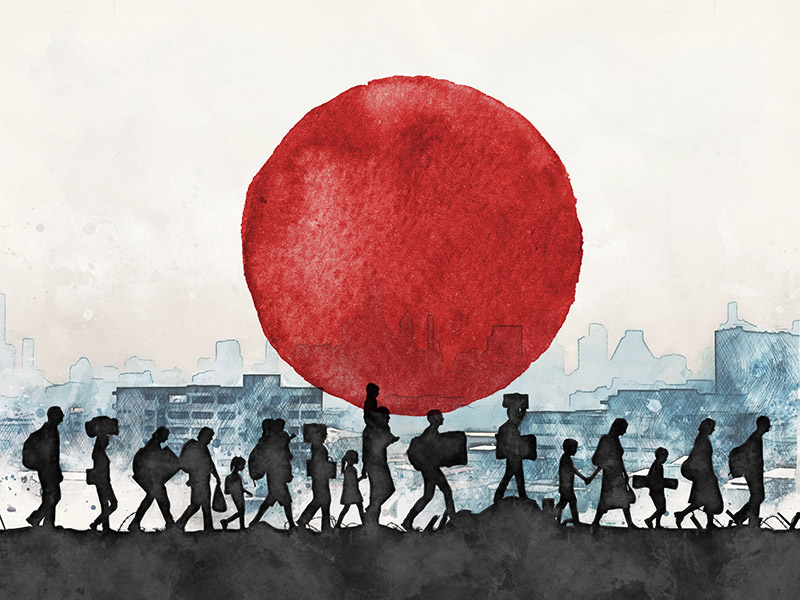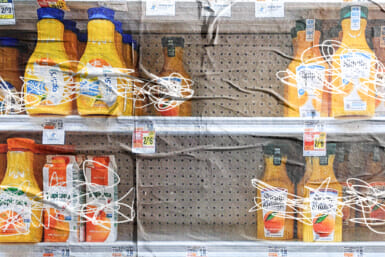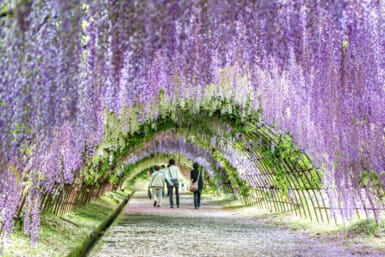Global media is so inundated with stories of war and strife, poverty and deprivation, religious persecution and ethnic prejudice, that we simply don’t have the mental bandwidth to deal with them all. We may flick through the broadsheets with a heavy heart or watch the evening news with an empathetic shake of the head, but too often we think of these stories as troubles in far-off lands; problems of elsewhere.
In the interconnected world of the 21st century we need to shift away from this outdated thought paradigm. According to the UN Refugee Agency, 79.5 million people were forcibly displaced from their homelands by the end of 2019, including 4.2 million asylum seekers. It’s up to the rest of the world to give them a home.
In Japan however, seeking asylum, and eventually the protection of refugee status, is still a formidable task. With less than one percent of refugee applications accepted each year, Japan ranks poorly among its developed nation peers – in 2019, 10,375 applications were made, yet a mere 44 were accepted (not including those who came through the UN’s refugee resettlement program, in which Japan accepts up to 60 applicants per year).
As the lengthy saga of the novel coronavirus pandemic continues, the precarious situation for some of the nation’s most marginalized inhabitants has become even more strained.
The Japan Association for Refugees
At the level of governance, Japan’s approach to foreign residents, even those with valid visas, has never been quite as egalitarian as one would hope. This foreign trepidation has extended to asylum seekers, resulting in the nation’s NGO’s forging a new path forward.
Leading the vanguard is the Japan Association for Refugees (JAR), founded 21 years ago in July 1999. During this time, they have assisted 7,000 asylum seekers from more than 70 countries, which JAR Chair of the Board, Eri Ishikawa, describes as a “great achievement.” However, in that same timeframe, the number of people accepted refugee status by Japan has scarcely changed, despite a 40-fold increase in foreign nationals seeking asylum.
“We are concerned, that during Covid-19, asylum seekers have become even more invisible”
Two years ago, 55,000 people in Germany, and 35,000 in the United States were recognized with refugee status. “In Japan however, it’s controlled by the immigration bureau, who prioritize immigrants over refugees,” says Ishikawa. “The standards and guidelines are too strict.” A fact represented in the low annual acceptance rate and the average time for a pending refugee case: three years (though some exceptional cases last up to 10 years). The exponential growth in asylum seekers, coming primarily from Asian countries, like Sri Lanka, Turkey, Myanmar and Nepal, can be attributed to Japan’s increased ease of access and cheaper international air travel over the past 10 years. JAR’s client-base however, is mostly comprised of people fleeing civil war and human rights violations in African countries – Cameroon, the Democratic Republic of Congo, Ethiopia – who find adapting to life in Asia more difficult, and struggle for a place in Japanese society.
Compounding Crises
There have been few new arrivals in Japan since late-March, when pandemic-enforced travel bans imprisoned the world’s would-be refugees within the borders they were trying to flee. Yet JAR has witnessed worrying trends among those already living and working here.
“Some have lost their jobs during the Covid-19 crisis, facing economic difficulties; some are in a fragile legal situation, called ‘provisional release,’ who aren’t allowed to work and have limited access to social assistance,” Ishikawa says.
In the direst situations, asylum seekers who were entirely dependent on individuals for financial support – such as friends, family, churches, mosques and community networks – have seen their benefactors lose their incomes too. Others are living in cramped detention centers, with poor conditions and limited access to healthcare services while their asylum seeker applications are being processed.
One man recently called JAR’s Tokyo office in a state of despair, saying he had nothing but rice left to eat for the foreseeable future, which is indicative of a problem that’s permeated the asylum seeker community during the pandemic.
A New Abnormal
JAR’s method of day-to-day operations has changed slightly in the past few months, as they’ve been acclimatizing to the difficulties of carrying out emotionally taxing tasks from a distance. During staggered working hours they’ve provided consultations and support over the phone in multiple languages, sent food packages and household items, housed homeless asylum seekers in shelters across the city, and made contact with those who can no longer afford phone bills or have lost access to public WiFi.
Ishikawa adds however, “We are concerned, that during Covid-19, asylum seekers have become even more invisible.” One client apparently expressed that social distancing and staying home alone has always been the default condition of his life in Japan. “This shows that we as a society put him in a really isolated situation. After Covid-19, we need to aspire towards a society where asylum seekers and marginalized people are more included.”
Find out how you can help by visiting refugee.or.jp/en/









